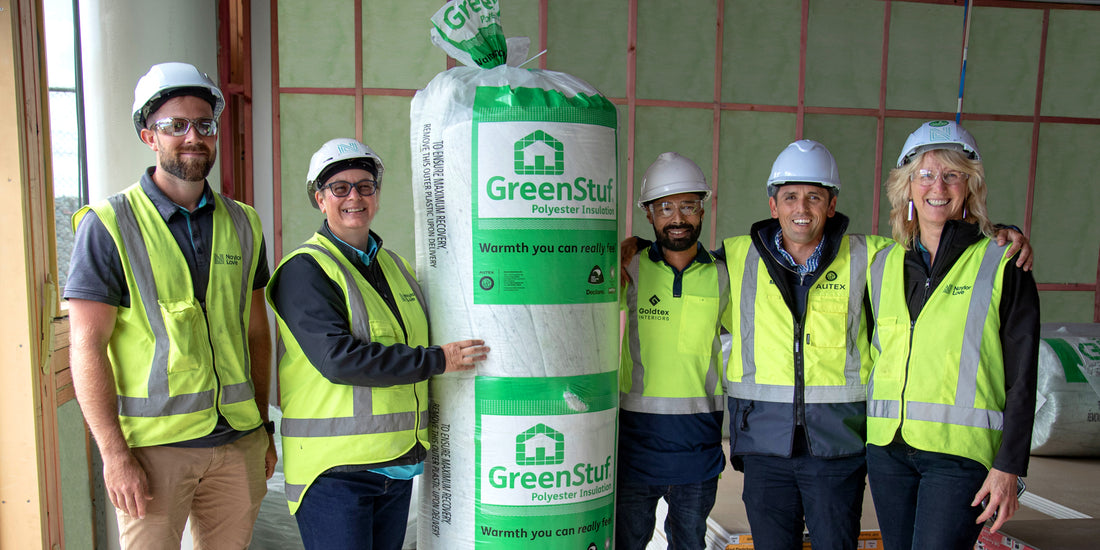GreenStuf has partnered with Naylor Love to reduce construction waste going to landfill, with the pilot programme now been rolled out industry-wide.
GreenStuf products are produced on a zero-waste manufacturing line, with all waste material reintegrated into the production process and all reclaimed packaging recycled. For over ten years now, we have effectively achieved a circular economy within the production process.
How the product is managed and recycled outside the factory gate is more complicated. A truly circular economy requires much wider collaboration across the entire construction industry. So we partnered with Naylor Love to pilot a project designed to close the gaps in the sustainability cycle.
A joint venture
In 2021, sustainability managers Aidan Hill from GreenStuf and Annie Day from Naylor Love created a joint venture to pilot the takeback of leftover GreenStuf insulation used in a high school construction project.
The project entailed collection and return of all GreenStuf trimmings and packaging for recycling. The goals were mutually beneficial: to lower the amount of waste going into Naylor Love’s bins, and to expand GreenStuf’s circular economy by developing a way to return and recycle excess product and packaging.

Piloting new solutions for the industry
‘Through this pilot, our aim was to steer the industry towards better cooperative practices,’ says Day. ‘Both companies helped each other achieve their goals.’
Hill says Naylor Love were a great partner for this project – they provided the hands-on knowledge necessary to improve and refine the scheme.
The pilot resulted in 100% return of waste product and packaging, and was so successful that the full Takeback programme was officially launched in early 2023.
‘The success of any takeback scheme is going to be driven by the commitment of the main contractor and its subcontractors,’ notes Hill. ‘The drive to achieve Green Star ratings will of course be a big motivator, but ongoing legislative change will eventually make proper product stewardship a must-have.’
Culture change is key
Most construction waste is thrown straight into a site skip, with all trades using the same skip. Both Hill and Day concede that for product recycling and reuse, on-site culture change is required to keep construction waste out of landfill.
‘At this early stage of product stewardship and takeback, a key part is the collaboration of everyone in the supply chain,’ says Hill.
Initially, site managers will have to drive culture change. In the pilot, for example, Naylor Love placed the site skip right by the site office to oversee what was dumped in. Product installers will also need to prioritise efficient use of product to minimise waste. Keeping a tidy workspace, too, will minimise the risk of sawdust or other contaminants mixing with the product, and so maximise the amount that can be recycled.
Beyond the pilot scheme, we are continuing to work with Naylor Love on other projects to progress towards a truly circular economy for our building materials. After all, the success of the Takeback scheme relies on commitment from everyone in the construction industry, from product owners and project owners to site managers and installers.
Click here to find out more about the GreenStuf Takeback scheme.
